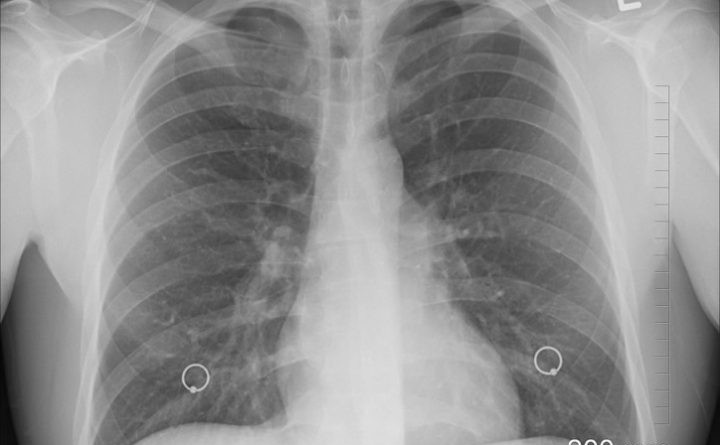Pneumonia is a serious health problem that is an infection or inflammation in the lungs. It can involve one lung or affect both lungs.
Pneumonia can result from breathing in droplets of infective agents or germs from an infected person’s sneeze or cough, particularly in a closed space such as a room, vehicle, store, or elevator. People also carry viruses or bacteria that cause pneumonia in their nose, mouth, and throat. During sleep, people can inhale these harmful particles or germs, which will allow them to enter the lungs.
There are several types of pneumonia, and symptoms can vary depending on the type of infection or cause of inflammation, a person’s age and health condition, and seriousness of the ailment. The signs of pneumonia can range from mild to serious medical emergencies. Children who are under the age of two are especially susceptible to pneumonia due to their undeveloped immune systems.
In some cases, pneumonia develops at a slow rate with mild symptoms. Because of this, it is often mistaken or confused with common illnesses like the flu or cold, keeping affected individuals from ever seeking treatment. Although they may not initially be severe, these symptoms can develop into serious conditions if ignored. Pneumonia can take several weeks to present the full range of symptoms. Usually during this period of time, you begin to develop a fever, suffer from minor body aches or pains, and feel slightly more fatigued.
Fever is a common symptom of pneumonia, and it may be persistent or recurrent. Those who have fever may also experience chills and sweating. Importantly, older adults, infants and individuals who have a weakened immune system may not experience fever with pneumonia.
Pneumonia can also cause increased respiratory rate in people. People with pneumonia may find that their breathing is abnormally fast. This symptom is usually most noticeable while lying down or during strenuous physical activity. Shortness of breath can also occur in people with pneumonia. It is usually mild and often occurs with physical exertion.
Hoarseness and sore throat are early symptoms of pneumonia caused by mycoplasma pneumonia, viruses, chlamydia pneumonia, or chlamydia trachomatis. Hoarseness and sore throat do not usually occur with pneumonia caused by fungi or bacteria. Muscle and joint aches are common symptoms of viral pneumonia, and these often precede other symptoms such as chest pain and cough. Pneumonia causes cough that usually produces mucus, which may be brown or green or contain blood.
Pneumonia can take a toll on your body, causing fatigue and general weakness. People with pneumonia often experience lethargy and a lack of energy. If you have a persistent cough, or fever that is accompanied by sweats or chills, or if you feel weaker after suffering from a cold or influenza, it is important that you get medical attention right away. If you are having any of the serious symptoms of pneumonia and have other medical conditions, are on any immune suppressing drug or treatment, you need to see a qualified medical practitioner immediately. Pneumonia, when untreated, can result in severe complications.
Featured Image Source: myhealthcaremagazine.com




